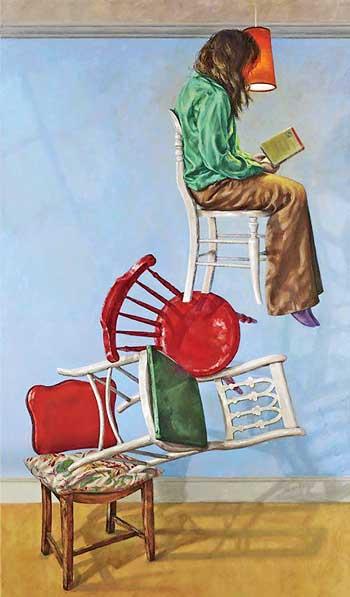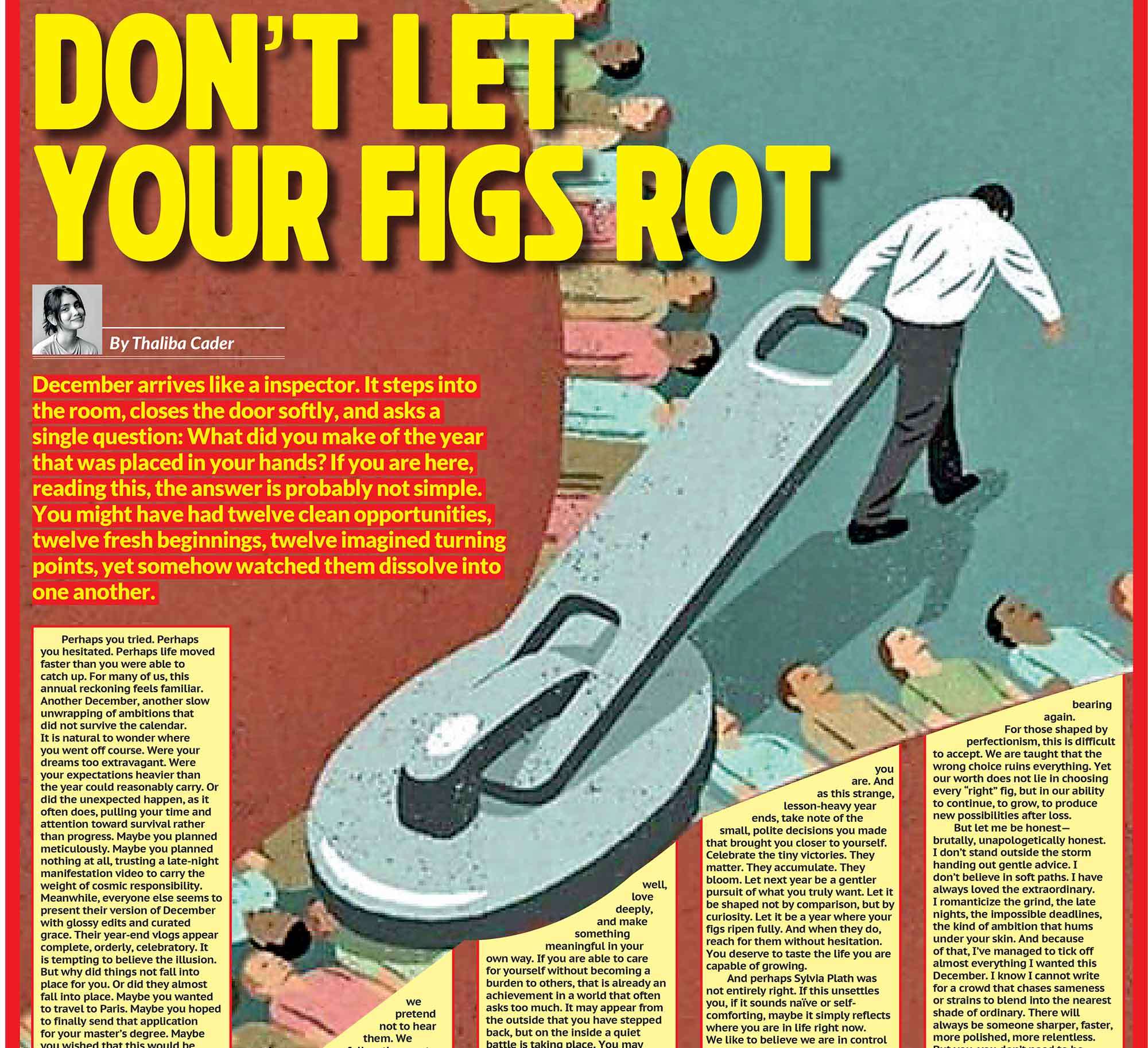 01.It begins without warning. The shift is so subtle you almost miss it. You touch something that should be cold, and for a moment, it isn’t. The glass feels cool against your skin, yet it seems alive, softened by your own warmth. The mind insists this is impossible, that heat cannot exist where cold has already claimed its space. But the body knows better. It knows deception by feel alone. Cold water can feel warm when your hands are freezing. The body learns to confuse relief with comfort, and comfort with love. Deprivation alters perception. When you have lived too long without heat, even cold begins to resemble safety.
01.It begins without warning. The shift is so subtle you almost miss it. You touch something that should be cold, and for a moment, it isn’t. The glass feels cool against your skin, yet it seems alive, softened by your own warmth. The mind insists this is impossible, that heat cannot exist where cold has already claimed its space. But the body knows better. It knows deception by feel alone. Cold water can feel warm when your hands are freezing. The body learns to confuse relief with comfort, and comfort with love. Deprivation alters perception. When you have lived too long without heat, even cold begins to resemble safety.
02.To understand people, you sometimes have to step outside the web and watch from a distance. You can never see the pattern while you are still tangled in it. Perhaps that is why philosophers cannot be therapists. One observes. The other intervenes.
- Maybe that is also why I find myself drawn to the strange language of situationships, the quiet script of half-promises and postponed affection. You have heard them too:
- “Maybe one day, when I’m ready.”
- “You’re everything I want; I just can’t handle it right now.”
- “You make me feel safe, and that scares me.”
- “I don’t want a relationship, but I don’t want to lose you.”
- “We’re not together, but I don’t want you with anyone else.”
- “It’s not that I don’t care; I just don’t know how to.”
We romanticize confusion. We call it depth. We grow attached to overthinking because chaos feels like effort, and effort feels like meaning. When life begins to fall apart, the calm that once steadied us starts to feel suspicious. Peace begins to look like complacency, and chaos starts to feel like proof that something real exists. Our minds, strange and ambitious as they are, find this rhythm irresistible. We are achievers by instinct. When affection escapes our control, we crave it more deeply. We convince ourselves that if we try harder, love better, or wait longer, they will finally choose us. We call it passion, but what we are really chasing is validation.
The unpredictability of toxic affection mirrors the neurological thrill of gambling. The brain releases dopamine when exposed to inconsistency, affection one moment, absence the next. This uncertainty fuels an emotional high that becomes addictive. We begin to crave the chase more than the connection itself. Many who remain in uncertain or toxic relationships carry anxious attachment patterns born in childhood. Love becomes entangled with unreliability, and safety begins to feel unfamiliar. Loneliness, though painful, seems less terrifying than rejection. For them, staying feels safer than starting over.
03.There is a quiet arrogance in believing you can fix someone. The desire to repair becomes a way to prove worth. Winning over someone unavailable feels like an accomplishment, even when it erodes you in the process. Sometimes affection and mistreatment coexist so tightly that the mind cannot separate them. Small moments of kindness interrupt neglect, making it harder to leave.
From the outside, it looks absurd. Someone beyond the web can see you holding frost and insisting it is warmth. Yet to the one inside, it makes perfect sense. The science is simple: deprivation distorts the senses. When the body forgets what real warmth feels like, contrast begins to feel like connection. That might be the quiet tragedy of modern love. It is no longer about what we find, but what we lack. We crave closeness so deeply that we mistake ambiguity for intimacy. We tell ourselves that half-light is still light. We measure effort, calculate worth, and still feel unseen. Meanwhile, the one who gives the least seems to hold the most power.
When someone touches us with indecision, we interpret it as tenderness. But the body remembers the texture of real warmth: the slow pulse of another hand, the steady rhythm of being held without conditions. It remembers, and it mourns. When memory fades, the body adapts. It builds illusions to survive absence. What we call comfort may only be adaptation. What we call love may only be the shadow of need. There comes a moment when the cold stops hurting. Not because it has gone, but because you have stopped resisting it. The mind numbs itself for protection, translating loss into endurance. You begin to believe that fragments are enough, that numbness is a kind of peace. But warmth was never a promise. It was a reflection, a mirror of how much of yourself you were willing to give.
04.Temperature is its own language. Cold and warmth are not opposites but dialects of the same truth. Cold is not always absence, and warmth is not always grace. Sometimes cold keeps you awake, reminds you of your edges. Sometimes warmth dulls you into forgetting where those edges end. Cold carries an honesty that warmth often hides. It does not promise comfort; it simply exists, asking only for presence. Hold something cold long enough, and you begin to rediscover yourself in it. Perhaps that is what we have been reaching for all along, not love, not comfort, but recognition. The realization that even in the absence of warmth, we are still capable of giving it.
The glass sits in your hand, condensation gathering like thought. It never truly changes. You do. You lend it heat, and for a brief moment, it gives the illusion of returning it. It is an uneven exchange, yet it feels like understanding. Everything we touch leaves a trace, even if it fades before we notice. The world is full of surfaces that forget us quickly, but we touch anyway, because touch is proof of existence. Perhaps warmth isn’t something we find, but something we return. It leaves us, then comes back changed. The glass does not owe you softness, but it receives you all the same. And maybe that is enough. To know that what you hold does not need to love you back to make you feel alive.
If you have made it this far, perhaps you are reading this by choice, or maybe by accident. Maybe you are sitting somewhere warm, unaware that you are still freezing. Because this was never just about the cold, or the warmth, or even the glass in your hand.
It is about everything we touch and hold on to, people, memories, ambitions, hoping they will feel whole again. But life does not return to the shelf the same way. What we delay becomes thrifted, worn by time and chance. So read it again, not for what it says about love, but for what it says about everything you feel in life. Because some things are too expensive to wait for until they are available again. They never return new. They come changed.











